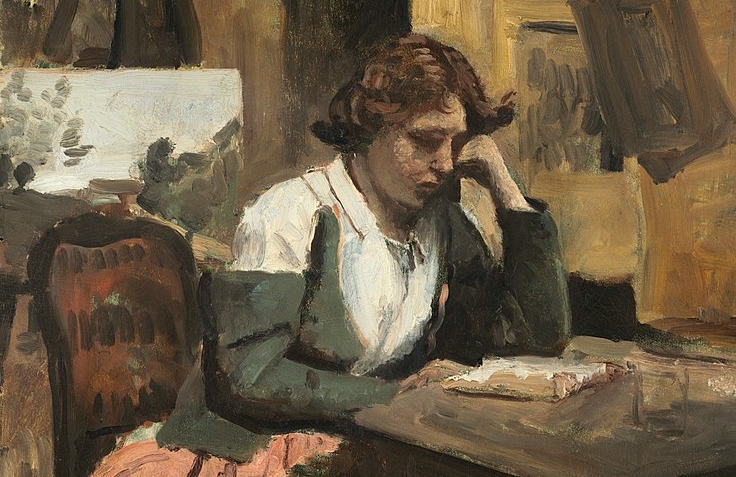Children are chained to their desks by the odious task of having to learn poetry by heart. I know you remember the feeling. Four measly lines seem like an entire saga, and hopelessness prolongs your agony of having to but not wanting to learn the verse that excludes you from the real world.
The real, tangible world where you scab your knees in zealous exploration of nature, where you build worlds of sand and neurons.
You remember the feeling but not the poetry, which left your mind as soon as it left your parched mouth as you stand in front of the cathedra sweating with concentration to expel this knowledge, aurally for the teacher, mentally for yourself. Childe Roland to the Dark Tower Came.
Class dismissed, it is for the best. As John Harrington put it:
“Among the rest, one whom it least concerned,
Askt me what I had at the Lecture learned?
I that his ignorance might soone be guile,
Did say, I learned nothing all the while.”
Do not read poetry because you have to. The selection enforced upon you by schools is oftentimes useless, and often serves only to uselessly try to impart upon you tacky nationalism. Read poetry because it serves you.
When after absorbing its wisdom, you go out to the real world, you are armed with its wit and knowledge, it would take several lifetimes to acquire through mundane experience.
Churchill constantly quoted from poems, and probably at least partially modelled up that whim, so does Boris Johnson.
He caused undue international upheaval for reciting Kipling’s Mandalay, often erroneously believed to be colonialist, in Myanmar. Kipling was an early advocate against the Communists in Russia and the Nazis in Germany.
Poets often stood up for liberty. Take Robert Browing who was a staunch liberal, standing up for human rights, as extolled in his aptly titled poem, Why am I a Liberal?.
“Who, then, dares hold, emancipated thus,
His fellow shall continue bound? Not I,
Who live, love, labour freely, nor discuss
A brother’s right to freedom. That is “Why.”
His wife, equally talented and rightly famous Elizabeth Barrett Browning, campaigned against child labor and slavery. True, some poets wrote glorifying songs for kings, yet often an excess of power was condemned. Pery Bysshe Shelley’s words will be more eternal than Ozymandias’:
“My name is Ozymandias, King of Kings;
Look on my Works, ye Mighty, and despair!
Nothing beside remains. Round the decay
Of that colossal Wreck, boundless and bare
The lone and level sands stretch far away.”
Statesmen themselves wrote poetry, from Abraham Lincoln to the aforementioned Winston Churchill. A poem of the latter, entitled Influenza written at school, is unfortunately fitting for the current contagion.
You can find poems for all occasions, to hold your hand in merriment or sorrow or in your endeavours to do the right things and advance liberty.
This is why everyone should read them. Not because schools force you to, but because you should have the liberty which you find is the best for you.
Continue exploring:



